- Home
- William Gibson
Zero History Page 11
Zero History Read online
Page 11
“How did you get out of that, Milgrim?”
“They changed my blood. Replaced it. And while they were doing that, they were reducing the dose. And there was a paradoxical antagonist.”
“What’s that?”
“I’m not sure,” said Milgrim. “Another drug. And cognitive therapy.”
“That sounds terrible,” she said.
“I liked the therapy,” Milgrim said. He could feel his passport against his chest, tucked safely into its Faraday pouch.
Rainy French countryside leapt on the carriage’s windows, hurtling, as if a switch had been thrown.
21. MINUS ONE
Foliage green,” she heard Milgrim say, flatly, as she paid the driver with euros she’d gotten from an ATM in the Gare du Nord.
She turned. “What?”
He was half out of the cab, clutching his bag. “That department store, Oxford Street,” he said. “Foliage green pants. Same man, just walked in. Where we’re going.” That sharp, nervy thing fully present now, the mildly confused semiconvalescent gone entirely. He looked as though he were sniffing the air.
“Keep the change,” she said to the driver, shooing Milgrim out of the way and pulling her roll-aboard after her. She closed the door and the cab pulled away, leaving them on the sidewalk. “Are you sure?”
“Someone’s watching us.”
“Bigend?”
“Don’t know. You go in.”
“What will you do?”
“I’ll see.”
“Are you sure?”
“Let me borrow me your computer.”
Hollis bent, unzipped the side of her bag, and pulled out her Mac. He tucked it under his arm, like a clipboard. She saw that vagueness returning, the blinking mildness. He’s cloaking himself, she thought, then wondered what that meant.
“You go in now,” he said, “please.”
“Euros,” she said, passing him some bills.
She turned and wheeled her bag across the pavement, into the crowd around the venue’s entrance. Was Milgrim imagining things? Possibly, though there was Bigend’s penchant for attracting the most unwanted forms of attention, then following whatever followers turned up. Exactly what Milgrim claimed to be about to do. She looked back, expecting to see him, but he was gone.
She paid an entrance fee of five euros to a Japanese girl and was asked to check her bag.
A cobbled courtyard was visible through arches. Young women there were smoking cigarettes, making it look at once natural and profoundly attractive.
The Salon du Vintage itself was being held within the retrofitted seventeenth-century building to which the courtyard belonged, a previous decade’s idea of sleek modernity smoothly folded into its fabric.
Every second or third person in her field of vision was Japanese, and many were moving in approximately one direction. She went with them, up a minimalist stairway of pale Scandinavian wood, emerging into the first of two very large bright rooms, chandeliers glittering above carefully arranged racks of clothing, glass-topped display tables and pieces of period furniture.
This year’s iteration of the Salon du Vintage was devoted to the Eighties, she knew from having Googled it. She always found it peculiar to encounter a time she had actually lived through rendered as a period. It made her wonder whether she was living through another one, and if so, what it would be called. The first decades of the current century hadn’t yet acquired any very solid nomenclature, it seemed to her. Seeing relatively recent period clothing, particularly, gave her an odd feeling. She guessed that she unconsciously revised the fashion of her own past, turning it into something more contemporary. It was never quite as she remembered it. Shoulders tended to be peculiar, hems and waistlines not where she expected them to be.
Not that her own Eighties had been anything like Gaultier, Mugler, Alaïa and Montana, which she was now gathering was the version mainly being presented here.
She checked the handwritten price tag on a mulberry wool Mugler jacket. If Heidi were here, she decided, and were into this sort of thing, which she wasn’t, fuckstick’s remaining credit cards could probably be flatlined in an hour, with the resulting swag still fitting easily in a single cab.
She looked up, then, and winced at herself, in Anton Corbijn’s 1996 portrait, enlarged and dry-mounted, suspended with transparent fishing line above the rack of Mugler. Anachronism, she thought. Not even her era.
Eager to escape the portrait, she declined an offer to try the Mugler on. Turning away, she brought out her iPhone. Bigend seemed to pick up before his phone had had a chance to ring.
“Do you have someone else here, Hubertus?”
“No,” he said. “Should I?”
“You didn’t have someone watching us, in Selfridges?”
“No.”
“Milgrim thinks he’s seen someone, someone he saw there.”
“Always a possibility, I suppose. Paris office hasn’t been told you’re there. Would you like some company?”
“No. Just checking.”
“Do you have anything for me?”
“Not yet. Just got here. Thanks.” She hung up before he could say goodbye. Stood there with her arm cocked, phone at ear-level, suddenly aware of the iconic nature of her unconscious pose. Some very considerable part of the gestural language of public places, that had once belonged to cigarettes, now belonged to phones. Human figures, a block down the street, in postures utterly familiar, were no longer smoking. The woman in Corbijn’s portrait had never seen that.
The number Clammy had given her the night before rang several times before it was answered. “Yes?”
“George? It’s Hollis Henry. We met at Cabinet, when Reg was still there.”
“Yes,” he said. “Clammy rang. You’re needing to speak with Mere.”
“I’d like to, yes.”
“And you’re here?”
“Yes.”
“Afraid it’s not possible.” George sounded much more like a young barrister than the Bollards’ keyboard player.
“She doesn’t want to discuss it?”
“Not at all.”
“I’m sorry,” she said.
“No, really,” he said, “not at all. She’s closing a deal on the Chanel she brought from Melbourne. Tokyo dealers. Taken her out to lunch. Left me minding the shop.”
Hollis held the iPhone away as she sighed with relief, then returned it to her ear. “She wouldn’t mind talking with me, then?”
“Not at all. Loves your music. Mother’s a great fan. Where are you?”
“Second floor. Not far from the stairs.”
“Did you see they’ve a picture of you there?”
“Yes,” she said, “I noticed.”
“We’re at the very back. I’ll look out for you.”
“Thanks.” She walked on, passing a display of denim work clothing she doubted was Eighties. All of it older than its dealer, she guessed, and she judged him to be in his forties. He watched her sharply as she passed; the Hounds jacket, she thought.
She found Olduvai George beyond an archipelago of transparent inflatable orange furniture which didn’t look Eighties to her either. He was smiling, natty and attractively simian, in jeans and a khaki raincoat.
“How are you?”
“Well, thanks,” she said, shaking his hand. “How are you?”
“Haven’t had a nibble since the Tokyo mob took Mere away. I don’t think I have the retail gene.”
Oxford, Inchmale had said of George, when she’d pressed him the night before. Balliol, graduated with a starred first PPE. Which she supposed she remembered perfectly now, because she had absolutely no idea what it might mean, other than that George was assumed to be monstrously overeducated for present employment. “And please don’t tell anyone,” Inchmale had added.
“Good thing you don’t need it,” she said, considering eight very petite, identically cut Chanel suits, displayed on austere charcoal-gray dress forms, that seemed to be the whole of Meredith Overton
’s stock. All cut from some thick fabric that resembled a highly magnified houndstooth check, in color combinations on the order of hot orange and mustard. She vaguely remembered oven mitts made of a similar material, similarly thick. She’d actually seen suits like this worn to very good effect once, but only once, and in Cannes. It had all depended, she’d thought at the time, on the way in which the two pieces resolutely refused to conform to the body. Now she saw that each garment had been threaded through with a slender steel cable, coated in transparent plastic. “Are they very valuable?”
“Hoping so. She found them in an estate sale in Sydney. They were made in the early Eighties, for the wife of a very successful property developer. Couture, exclusive fabrics. The sellers had no idea, but in order to do really well with them, it’s either here, now, or Tokyo. And the significant Japanese buyers are all here, today, and Paris adds a certain symbolic leverage. They were made here.”
“She was tiny,” Hollis said, reaching out to touch a fabric-covered button, but stopping.
“Would you like to see a photograph of her wearing one?”
“Really?”
“Mere found them in the papers, in Australian city glossies. Even a bit of video.”
“No, thanks,” Hollis said, the eight brightly suited dress forms feeling suddenly like tomb statuary, power objects, the fetishes of a departed shamaness, occultly cocked and ready.
“There are handbags too, purses. Like new. She has them here but decided not to display them. Because they’re a bit more affordable, she’d just have to show them repeatedly. Doesn’t want them pawed over by the punters.”
“Did Clammy tell you what I’m after, George?”
“Not exactly, but now you’re here, I’m guessing it’s about your jacket.”
It felt odd, hearing someone outside of Bigend’s circle, other than Clammy, reference Hounds. “How much do you know about that?”
“No more than Clammy, I imagine. She’s very closely held, Mere is. Business like this is more about keeping secrets than advertising.”
“How’s that?”
“There aren’t that many serious buyers. Quite a few serious dealers, though.”
She’d liked him, when they’d met at Cabinet, and found she liked him now. “Clammy says that Mere knew someone, when she was at that footwear college in London,” she said, deciding to trust him. As usual, she surprised herself in this, but once in, you rolled with it. “Someone associated with Gabriel Hounds.”
“That may be,” George said, smiling. The proportions of his skull were oddly reversed, jaw and cheekbones massive, brows heavy, forehead scarcely the width of two fingers, between a unibrow and his densely caplike haircut. “But best I don’t speak of it.”
“How long have you been together?”
“Bit before Clammy met her in Melbourne. Well, that’s not true, but I already fancied her. She claims it wasn’t mutual at all then, but I have my doubts.” He smiled.
“She’s living back in London? Here?”
“Melbourne.”
“That’s seriously long-distance.”
“It is.” He frowned. “Inchmale,” he said, “while I have you.”
“Yes?’
“He’s certainly hard on Clammy, mixing the bed tracks. I’ve stayed well out of it.”
“Yes?”
“Can you give me any advice? Anything that might make working with him easier?”
“You’ll be going to Arizona soon,” she said. “Tucson. There’s a very small studio there, owner’s Inchmale’s favorite engineer. They’ll do some initially very alarming things to your London bed tracks. Let them. Then you’ll basically rerecord the entire album. But very quickly, almost painlessly, and I imagine you’ll be extremely pleased with the result. I’ve already told Clammy that, but I’m not sure it got through.”
“He didn’t do that on the first album he produced for us, and we were a lot closer to Tucson then.”
“You weren’t there yet. In terms of his process. You are now. Or almost, I’d say.”
“Thanks,” he said, “that’s good to know.”
“Call me, if you’re getting exasperated. You will. Clammy will, in any case. But you’ve jumped with him, and if you let him, he’ll land on his feet, and the album with him. He’s not very diplomatic at the best of times, and he gets less so, the further into the process you go with him. Any idea when Mere will be back?”
He consulted a very large wristwatch, the color of a child’s toy fire engine. “Going on an hour now,” he said, “but I’ve really no idea. Wish she’d get back myself. I’m dying for coffee.”
“Café in the courtyard?”
“Indeed. Large black?”
“You got it,” she said.
“You can take the lift,” he said, pointing.
“Thanks.”
It was German, with a brushed stainless interior, the philosophical opposite of Cabinet’s, but not much larger. She pushed 1, but when it passed 0, she realized that she’d pushed -1.
The door opened on a dim, blue-lit void, and utter silence.
She stepped out.
Ancient stone groins, receding toward the street, illuminated by concealed disco floodlights, dialed down low. A small impromptu corral of what she took to be spare Salon du Vintage gear, on the bare stone floor, dwarfed by the arches. Folding chrome sample racks, a few dress forms looking Dali-esque in this light.
All quite wonderfully unexpected.
And then, at the far end of the blue arches, descending stairs, a figure. As described by Milgrim. The short-brimmed cap, short black jacket, zipped up tight.
He saw her.
She stepped back into the elevator, pressing 0.
22. FOLEY
Milgrim, with Hollis’s laptop clamped firmly under his arm, bag over the other shoulder, walked rapidly along a smaller street, away from the one where her vintage clothing fair was being held.
He needed wifi. He regretted not borrowing the red dongle.
Now he neared a place called Bless, at first mistaking it for a bar. No, a place that sold clothing, he saw. There might be someone in there, he supposed, glancing in the window, who would either know about or pretend to know about Hollis’s phantom jeans line.
He kept walking, simultaneously conducting an imaginary exchange with his therapist, one in which they sorted out what he was feeling. Having worked very hard to avoid feeling much of anything, for most of his adult life, recognizing even the simplest of his emotions could require remedial effort.
Angry, he decided. He was angry, though he didn’t yet know who or what at. If Winnie Tung Whitaker, Special Agent, had sent the man in the foliage green pants, and hadn’t told him, he thought he’d be angry with her. Disappointed, anyway. That wouldn’t be getting off on the right foot, in what he thought of as a new professional relationship. Or perhaps, his therapist suggested, he was angry with himself. That would be more complicated, less amenable to self-analysis, but more familiar.
Better to be angry with the man in the foliage green pants, he thought. Mr. Foliage Green. Foley. He didn’t feel kindly disposed toward Foley. Though he had absolutely no idea who Foley might be, what he was up to, or whether Foley was following him, Hollis, or the both of them. If Foley wasn’t working for or with Winnie, he might be working for Blue Ant, or for Bigend more privately, or, given Bigend’s apparent new attitude toward Sleight, for Sleight. Or none of the above. He might be some entirely new part of the equation.
“But is there an equation?” he asked himself, or his therapist. Though she now seemed not to be answering.
Rue du Temple, a wall plaque informed him at the corner, on a building looking as though it had been drawn by Dr. Seuss. A larger street, Temple. He turned right. Past an ornate, Victorian-looking Chinese restaurant. Discovering a smoke shop that also offered coffee, its official, spindle-shaped, red-lit Tabac sign presenting nicotine-lack as a medical emergency. Without slowing, he entered.
“Wifi?”
“Oui.”
“Espresso, please.” Taking a place at the authentically nonreflective zinc counter. There was a faint but definite smell of cigarette smoke, though no one was smoking. Indeed, he was the only customer here.
His therapist had suspected that his inability with Romance languages was too thorough, too tidily complete, thus somehow emotionally based, but they had been unable get to the bottom of it.
Obtaining the password (“dutemple”) from the counterman, he logged on to Twitter, his password there a transliteration of the Russian for “gay dolphin,” the Cyrillic loosely rendered in approximation on the Roman keyboard.
Her “Whr R U now?” had been sent “about 2 hours ago from TweetDeck.”
“Paris,” typed Milgrim, “man following us, seen yesterday in London. Is he yours?” He clicked the update button. Sipped at his espresso. Refreshed the window.
“Describe,” this less than five seconds ago via TweetDeck.
“White, very short hair, sunglasses, twenties, medium height, athletic.” He updated. Watched people passing, through the window.
Refreshed the window. Nothing but a short URL, sent forty seconds before from TweetDeck, whatever that was. He clicked on it. And there was Foley, wearing what might be the olive-drab version of the black jacket, with a black knit skullcap rather than the forage cap. Oddly, his eyes were concealed by a black Photoshopped rectangle, as in antique porn.
Milgrim glanced at the page’s header and the image’s caption, something about “elite operator’s equipment.” He concentrated on the photograph, assuring himself that this was in fact his man. “Yes,” he wrote, “who is he?” and updated.
When he refreshed, her reply was thirty seconds old. “Never mind & try not 2 let hm no ur on hm,” she’d written.
Know, he thought, then typed “Bigend?”
“When U back”
“Hollis thinks we’re back tomorrow.”
“Ur lucky ur in paris out”
“Over,” he wrote, though he wasn’t sure that was right. Her telegraphese was infectious. He saved the URL of the elite operator’s page to bookmarks, then logged out of Twitter, out of his webmail, and closed the computer. His Neo began to ring, its archaic dial-phone tone filling the tobacco shop. The man behind the counter was frowning.

 Pattern Recognition
Pattern Recognition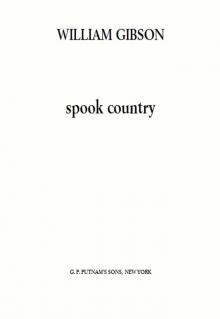 Spook Country
Spook Country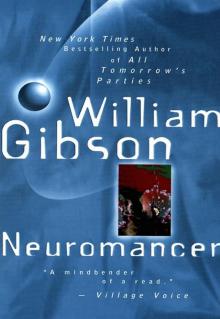 Neuromancer
Neuromancer Skinner's Room
Skinner's Room The Difference Engine
The Difference Engine Mona Lisa Overdrive
Mona Lisa Overdrive Zero History
Zero History The Peripheral
The Peripheral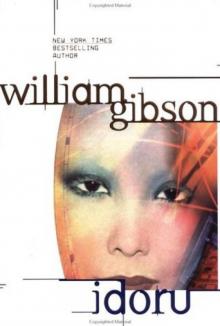 Idoru
Idoru Johnny Mnemonic
Johnny Mnemonic Count Zero
Count Zero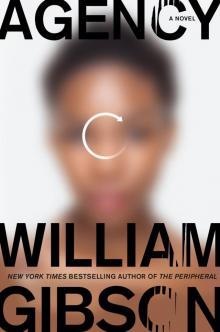 Agency
Agency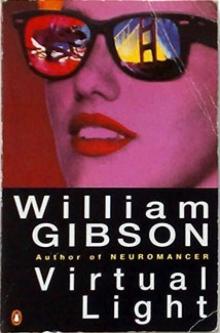 Virtual Light
Virtual Light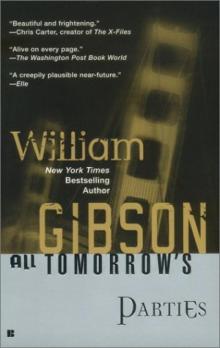 All Tomorrow's Parties
All Tomorrow's Parties The Miracle Worker
The Miracle Worker Disneyland with the Death Penalty
Disneyland with the Death Penalty Idoru tb-2
Idoru tb-2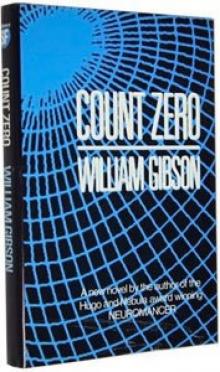 Count Zero s-2
Count Zero s-2 The Gernsback Continuum
The Gernsback Continuum New Rose hotel (tales)
New Rose hotel (tales)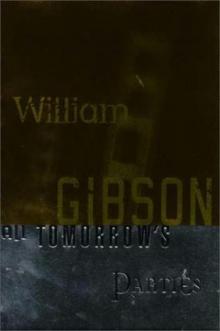 All Tomorrow's Parties bt-3
All Tomorrow's Parties bt-3 Hinterlands
Hinterlands Thirteen Views Of A Cardboard City
Thirteen Views Of A Cardboard City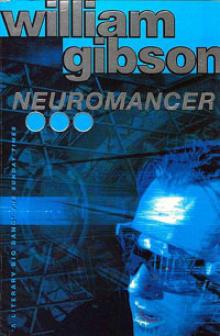 Neuromancer ts-1
Neuromancer ts-1 Virtual light b-1
Virtual light b-1